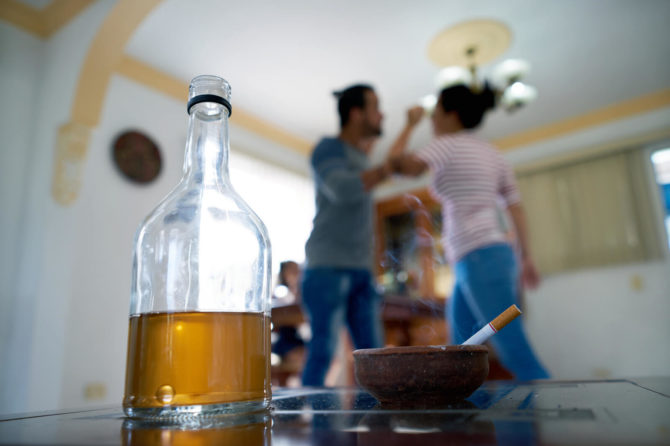
Children of Alcoholics Week
For most of us, Valentine’s Day evokes images of candy red hearts and candlelight dinners with that special someone. But what could be more special than expressing your love with a healthy outlook? It’s a gift that will last for not only the day but for the entire week and beyond.
Every year, Valentine’s Day falls squarely in the middle of Children of Alcoholics Awareness Week. This is a chance to recognize the toxic effects of alcohol abuse on the entire family unit.
By the Numbers
An estimated 28 million Americans can be classified as children of alcoholics. About 40% of these individuals are still under the age of 18 while the other 60% are embarking upon adulthood without the solid foundation of a healthy upbringing.
Experts believe that the biological offspring of alcohol abusers are anywhere from two to nine times more likely to develop substance use issues themselves. This may be due to genetics or environmental causation, but it’s a staggering statistic regardless.
Even if children of alcoholics do not exhibit the symptoms and patterns of alcoholism themselves, they may suffer other forms of abuse at the hands of their parents. Those afflicted by addiction are often ill-equipped to make the proper decisions associated with “good parenting” and may perpetrate neglect, emotional distress, and even physical abuse on those in their care.
Rates of health issues skyrocket for children of alcoholics. This group is approximately 24 to 29 percent more likely to be admitted to a hospital than children of non-alcoholic parents, and their length of inpatient stays are considerably longer too.
But it’s not just a matter of physical health; mental health is also greatly affected by addiction issues. Over half of kids who are admitted to institutions for psychological disorders report having one or more parents who misuse drugs and/or alcohol.
This problem ripples out from the micro and into the macro. Between 70 and 90 percent of our nation’s child welfare spending can be directly correlated to the scourge of parents’ substance use issues. When you consider the fact that 10 million men in America aren’t seeking help for their burgeoning alcohol dependence, you begin to see the root of a problem that will expand until it breaks our budget, our spirit, and our society.
What You Can Do
The crux of Children of Alcoholics Week can be summed up in one word: awareness. But this term entails a vast realm of complexities and wondrous permutations. Awareness is as personal as opening your eyes and as public as educating the world at large. Here are a few ways that you can celebrate the week as boldly and bravely as possible:
- Talk – It sounds deceptively simple, but talking is the first step in combating the cycle of shame and pain. Tell your story, share your example, and spread the word. If you’re the child of a substance user, your words are valuable to the community who shares your experiences. And if you’re the parent in question, we want to hear from you. Only by shining a light on your pain may we begin the arduous yet vital process of turning a corner for you and your family.
- Listen – The flip side of the coin above is that you must hear others’ tales when they’re ready to be told. Look for anyone who might be withdrawn or alienated and ask if they need help. Join a support group and be a proverbial shoulder to cry on. Being a hero sometimes means just being there.
- Get Social – let’s face it: we are creatures of social media. It’s often the first medium we check when we log on in the morning and the last place we chat before logging off at night. Social media connects us to pop culture, politics, and cat videos, but it can be so much more useful. Spread the word on your social channels that Children of Alcoholics Week is coming, and then get ready to connect with others who share your concern.
- Amplify Your Voice – You are powerful and passionate, but you are only one person. By joining forces with like-minded individuals, you could multiply your impact. Get your family, church, or office involved in the CoA movement. Or better yet…
- Start an Event – Now that you’re organized and galvanized, make the most of it. Create a support group, invent a hashtag, or reach out to other local groups and see how you can join forces to celebrate the week together. For example, perhaps there’s a local shelter that needs funding – start a collection and make a connection!
- Educate, Educate, Educate – All of the aforementioned activities will gradually turn you into a more enlightened emissary of Children of Alcoholics Week. Be the expert you are and use that newfound knowledge to educate others on the subject.
You Are Not Alone
No matter how connected we may be online or otherwise, we often feel alone at the end of the day. Nobody can truly understand your individual journey, but that doesn’t mean you shouldn’t reach out and try to connect.
Our unique blend of listening and learning has made Windward Way a beacon for men seeking help for substance use issues. Rather than dwelling on blame and shame, we offer a new way forward. Find your strength, reclaim your sobriety, and call us today.
Leave a reply